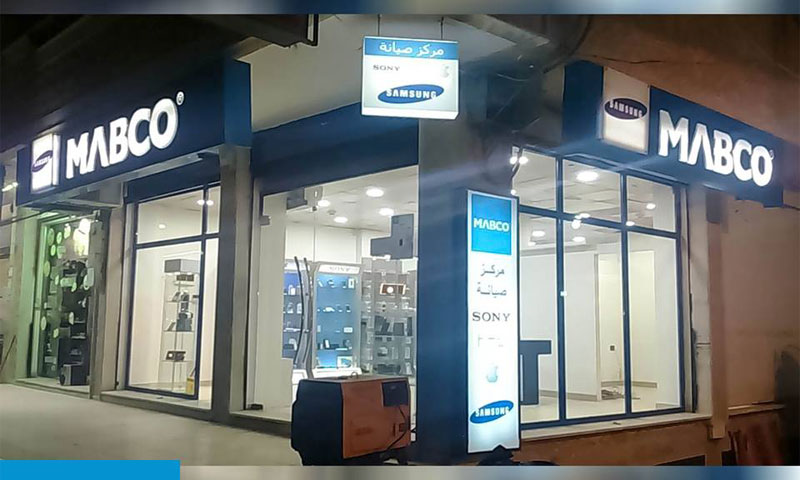
Employee in Private Company: Our Sales are up 700%
Authorization of Mobile Devices in Syria Increases Government and Company Profits

Murad Abduljalil
“The only thing left for the government to make us pay for is air,” said one citizen expressing his anger on social media after the Syrian Ministry for Communications and Technology issuing a decision on 8 November setting the fee for registering a mobile phone on the Syrian network at 10,000 Syrian pounds. In addition to the registration fee, the Ministry announced a fee of 800 Syrian pounds for mobile phone companies to authorize a mobile phone, adding to citizens’ suffering after a series of decisions issued since the start of 2016.
The announcement of the fee amount came around five months after a decision by the Communications Regulatory Authority issued on 23 July 2016. Based on the decision, the Ministry requested traders, importers and those coming into the country to declare all purchases of mobile phone devices that did not enter Syria regularly via customs, and that therefore had not been approved by the Authority.
Citizens: An Unjust Decision
Syrian citizens responded to the decision with a wave of anger on social media, especially at the decision to standardize the fee for all kinds of devices regardless of their type or price.
Owners of mobile phones whose value does not exceed 60,000 or 70,000 Syrian pounds will thus pay the same amount as owners of mobile phones with an estimated price of 300,000 or 400,000 Syrian pounds, causing many to consider the decision unjust.
Ibaa Awisheq, General Director of the Communications Regulatory Authority, was quoted in local newspapers explaining that the uniform authorization fee and its lack of specificity to the type of device is a way to “avoid mistakes when devices are identified and classified, causing owners to pay the wrong fees for these devices. It is a technical matter to help reduce problems and mistakes in authorization procedures.”
Millions of Pounds for the Regime’s Treasury and Companies
Khalid Asker, Head of the Customs Directorate in Damascus, revealed to the pro-regime Watan newspaper on 9 November that 4784 mobile phones owned by traders have been authorized, mainly in Damascus, and are valued at around 20,000 Syrian pounds.
Awisheq, on the other hand, announced that “hundreds of thousands” of mobile phone devices had entered Syria illegally and require authorization within Syria. This means that millions of pounds will enter the Syrian regime’s coffers whether through customs or through authorizing smuggled telephones.
One of the employees in the MABCO company in Damascus, who refused to disclose his name, told Enab Baladi that following the decision the company had witnessed a large increase in its sales, because citizens were now buying mobile phones from the company as the phones had entered the country legally and were not smuggled, in addition to having a company guarantee.
The source confirmed that the company increased its imports of mobile phones following the issuing of the decision. While it used to import around 4,000 devices per month, the number had risen to around 25,000.
This means that over 104 million Syrian pounds (201,000 US dollars at the exchange rate of 1 US dollar to 517 Syrian pounds) will enter the customs’ treasury on a monthly basis, if we calculate that the cost of 4784 devices is 20 million Syrian pounds, according to the Director of the Damascus Customs Directorate.
This amount represents the profits of one company alone (MABCO), while other companies also import mobile phones such as Barak in Damascus. Profits from adding the authorization fee on the imported phones will be added to profits from fees for authorizing unauthorized phones.
Regarding profits by shop owners, the source confirmed that companies have started selling telephones wholesale and at prices 1000 Syrian pounds lower than the retail price displayed at the company headquarters.
Will Smuggling Decrease?
The Ministry of Communications sees the decision as a solution to prevent the entry of mobile phones through smuggling and illegal means, a practice that has become widespread in the recent years, particularly from Lebanon. This has been a key source of income for many shops, especially in Burj Dimashq, which is where most citizens go when they want to buy a mobile device cheaper than the devices sold by companies.
The Ministry called on citizens to avoid buying devices if they are not sure that the devices are authorized and have undergone authorization procedures by the Communications Regulatory Authority and the General Customs Directorate. This would help them avoid having to carry out the authorization procedure and pay the authorization fee.
But Khalid Ali, a shop owner in the al-Bahsa area in Damascus, thinks the decision will limit the smuggling of telephones for now, until its details and execution mechanisms become clearer. He explained that smuggling would continue so long as smuggled devices are cheaper than the telephone devices that enter the country legally.
Regarding registering a telephone on the network, Ali explained that phone users can switch off the device and change its sequence number using several programs that give the device a new identification number so it can be used on the Syrian network. This can be done at shops, which he thinks will become more widespread to provide users with a means of avoiding paying 10,000 Syrian pounds in customs fees.
This is what the General Director of the Communications Regulatory Authority warned of, “Some shops will provide services they should not provide, to change the identification number particular to the device so that the device can work on the network by giving it an authorized device number…Technically, it is not easy to prevent this phenomenon.”
Syrian Opposition Areas Deprived
The decision will deprive a large segment of Syrian citizens in areas controlled by the opposition who are still using the communication services provided by the two Syrian telecoms companies, especially as they cannot enter areas under regime control for security reasons.
Enab Baladi’s reporter in Deraa confirmed that the decision would not have a major effect on the area as most citizens are using the Jordanian communications network. Moreover, many buy mobile phones brought in from Jordan for internet use only so the smuggling of devices will continue.
In the city of Idlib in northern Syria, Enab Baladi’s reporter confirmed that users would not be affected by the decision. The city, which has been under the control of opposition factions since April 2015, saw its mobile transmission towers destroyed and the tower’s batteries stolen, resulting in the area being off the communications grid entirely.
Enab Baladi’s reporter explained that most users buy mobile phones to use internet applications via wifi and talk using communications programs such as Facebook and WhatsApp.
Although some areas still connect to the Syrian network, the northern parts of the province have turned to Turkish networks, which cover a wider area.
Following the issuing of the decision, citizens in Eastern Ghouta, a suburb of Damascus, have begun buying phones that entered the country legally. Users have also started checking if the phones smuggled to them from regime areas are registered on the network by checking the website launched by the Ministry of Communications.
Some observers say that the authorization decision on mobile phone devices is designed to benefit the only two mobile phone companies in Syria, Syriatel and MTN. The number of mobile phone users in Syria exceeds 11 million according to official statistics published on the Ministry of Communications and Technology’s website in 2010. The Ministry has stopped updating the statistics since then.
if you think the article contain wrong information or you have additional details Send Correction
النسخة العربية من المقال
-
Follow us :
Most viewed
- Reduction of Fifth Corps: Pressure on Moscow reflected in Syria
- Saudi Arabia to prosecute sheikh Saleh al-Shami and ten Syrians in May
- Hidden aspects of Iranian consulate building targeted in Damascus
- AANES receives first batch of Syrian refugees deported from Iraq
- US House of Representatives passes "Captagon II" bill

















 A
A
A
A
A
A



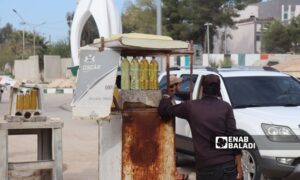
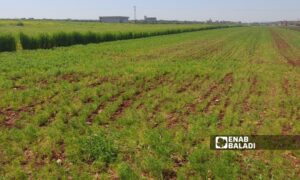
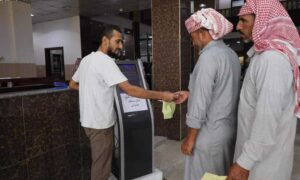
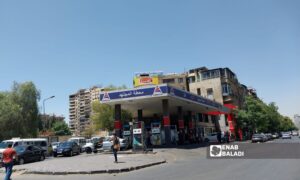
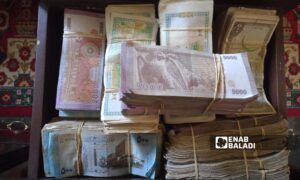
 More Economy
More Economy